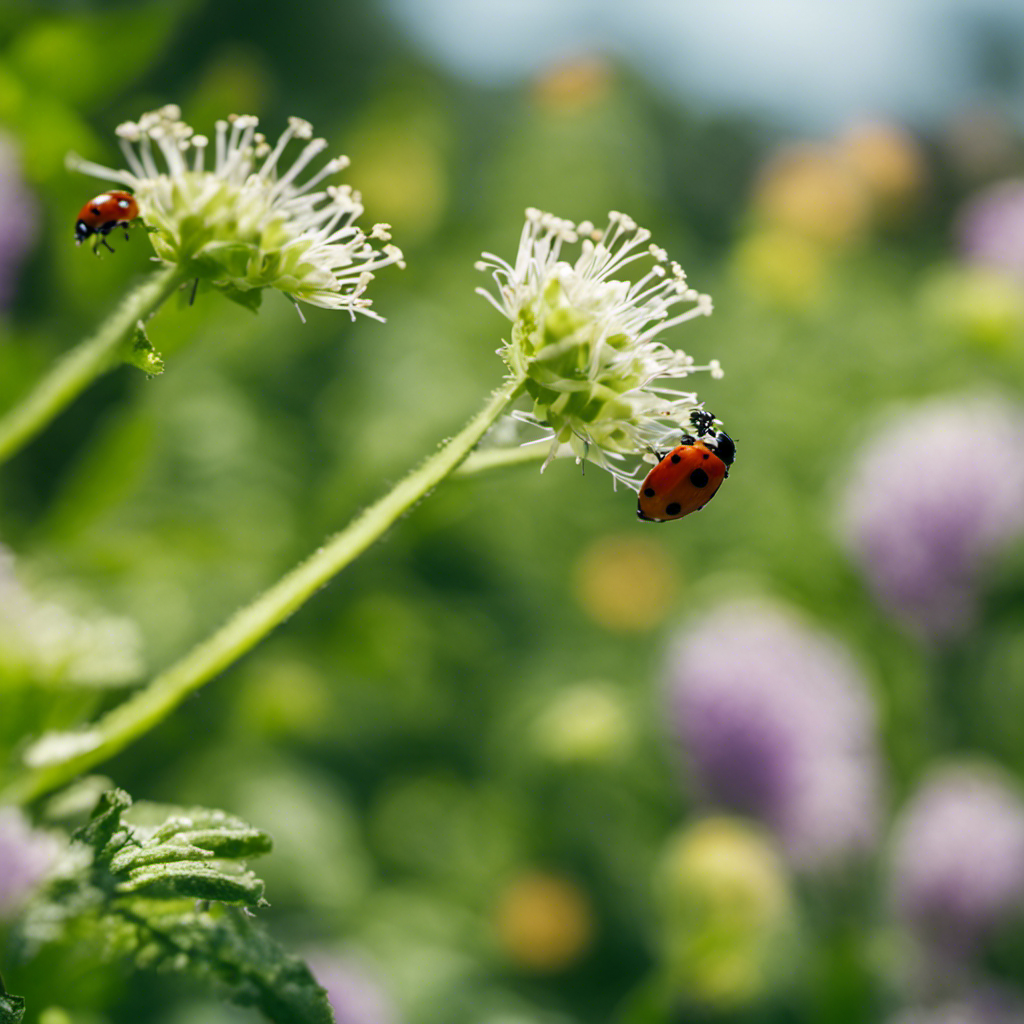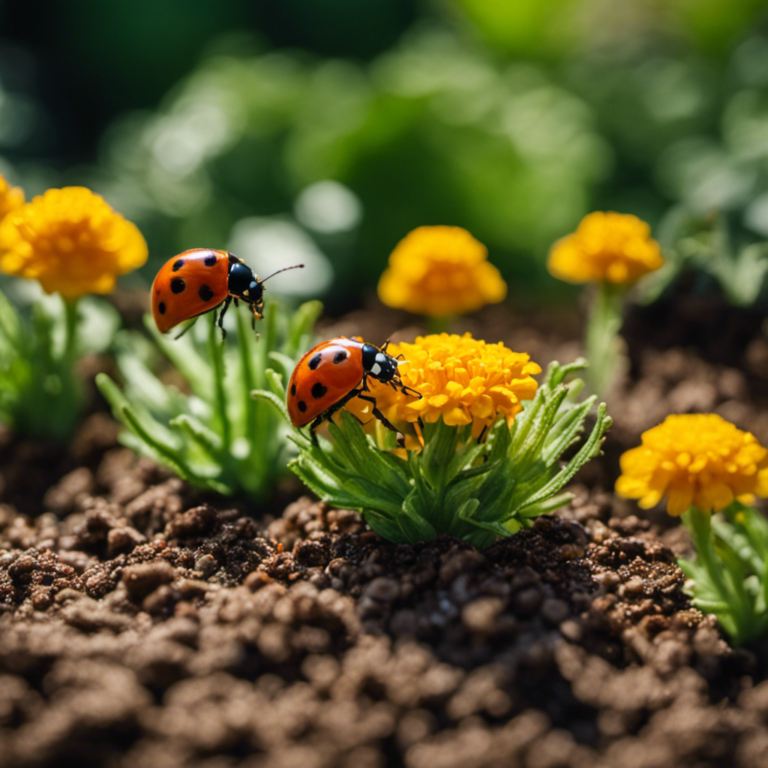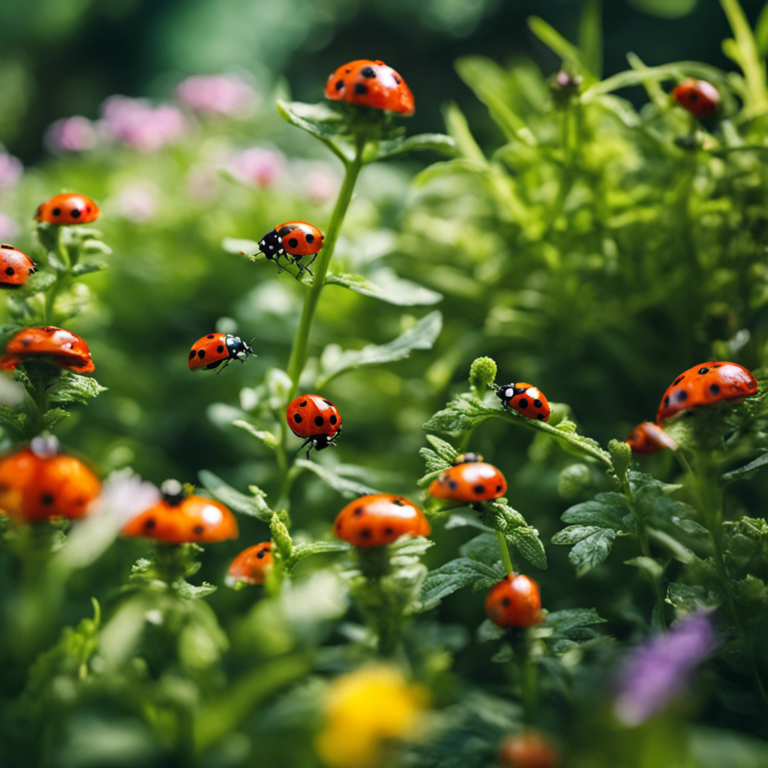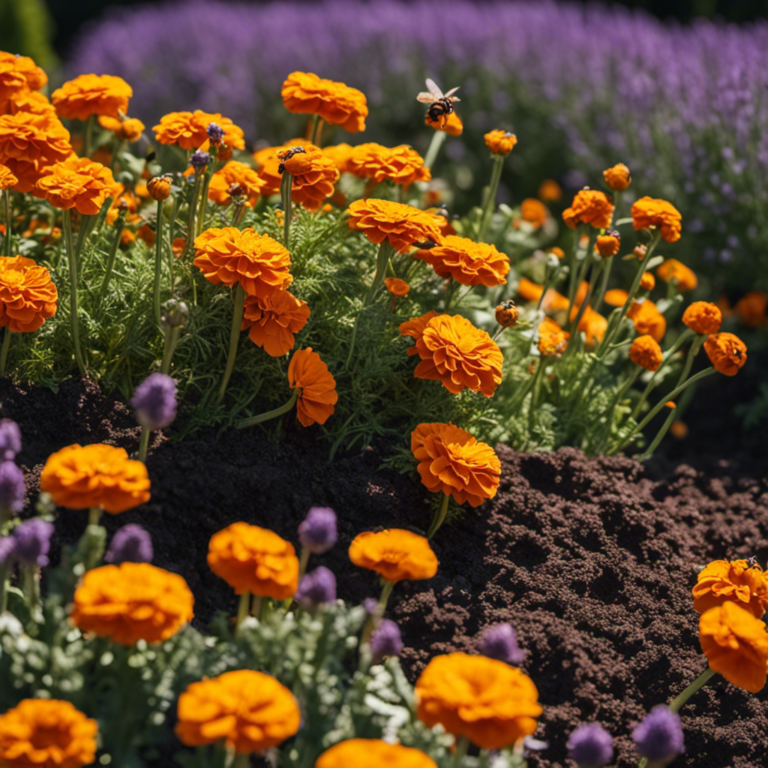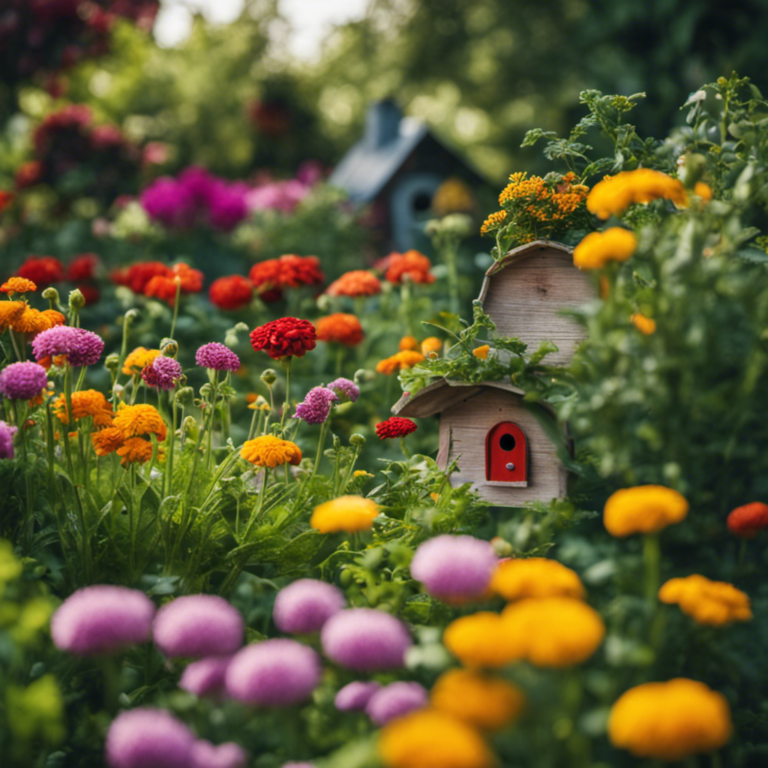Are you tired of dealing with pests in your garden? Well, worry no more! We have the perfect solution for you.
Introducing natural pest control methods that are not only effective but also environmentally friendly. These methods include companion planting, biological control, natural repellents, physical barriers, and soil amendments.
By incorporating these techniques, you can effectively keep those bothersome critters away without causing harm to the ecosystem.
So why wait? It’s time to embrace these natural methods and reclaim your garden!
Key Takeaways
Are you using these natural methods to control pests in your garden? By incorporating techniques like companion planting, biological control, natural repellents, physical barriers, and soil amendments, you can effectively manage pests in a scientific and precise manner. These methods not only provide an eco-friendly solution but also contribute to a more balanced and sustainable ecosystem. So, why not consider these natural alternatives and eliminate the use of harmful chemicals and pesticides? Your garden and the environment will both benefit from it.
Companion Planting

Have you heard about the benefits of companion planting for natural pest control?
Companion planting is a technique where different plants are planted together to maximize their benefits and deter pests.
One of the main advantages of companion planting is its ability to naturally control pests without the use of harmful chemicals.
Certain plants have natural properties that repel pests, and when planted together, they form a symbiotic relationship that benefits both plants.
For instance, planting marigolds alongside tomatoes can help keep nematodes and aphids away.
Other beneficial combinations include planting basil with tomatoes to repel flies and mosquitoes, and planting onions with carrots to deter carrot flies.
Biological Control
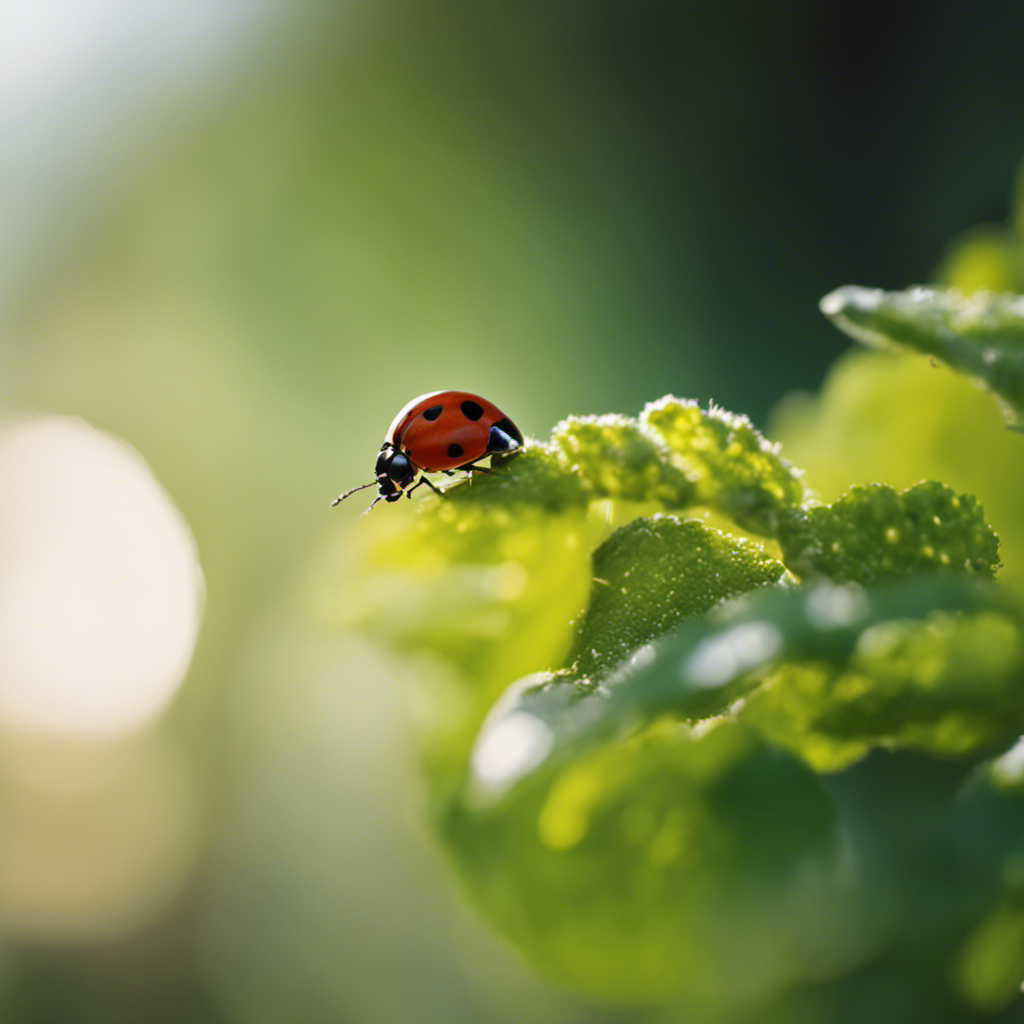
Using beneficial insects and organisms to naturally control pests in your garden is an effective method known as biological control. This approach involves the use of natural predators, parasites, or pathogens to regulate pest populations.
Biological control offers several benefits for your garden. It’s environmentally friendly, as it reduces the need for chemical pesticides that can harm beneficial insects and the ecosystem. Additionally, it’s a sustainable and long-term solution, as the natural predators and organisms can establish a balance and continue to control pests even after initial intervention.
However, it’s important to consider some drawbacks. The effectiveness of biological control may vary depending on the specific pest and the availability of natural enemies. Furthermore, the process may require time to show results, necessitating patience and careful monitoring.
Natural Repellents

To effectively manage pests in your garden, consider using natural repellents as a complement to biological control methods.
Natural repellents are a safe and environmentally friendly way to keep unwanted pests away from your plants. One popular option is the use of essential oils, which are derived from plants and have natural repellent properties.
Essential oils like peppermint, lavender, and citronella can be mixed with water and sprayed onto your plants to deter pests. These oils have strong scents that pests find unpleasant, causing them to stay away. Some essential oils also have insecticidal properties that can either kill or repel pests.
It’s important to dilute the oils properly and follow the instructions on the label for safe and effective use.
Physical Barriers
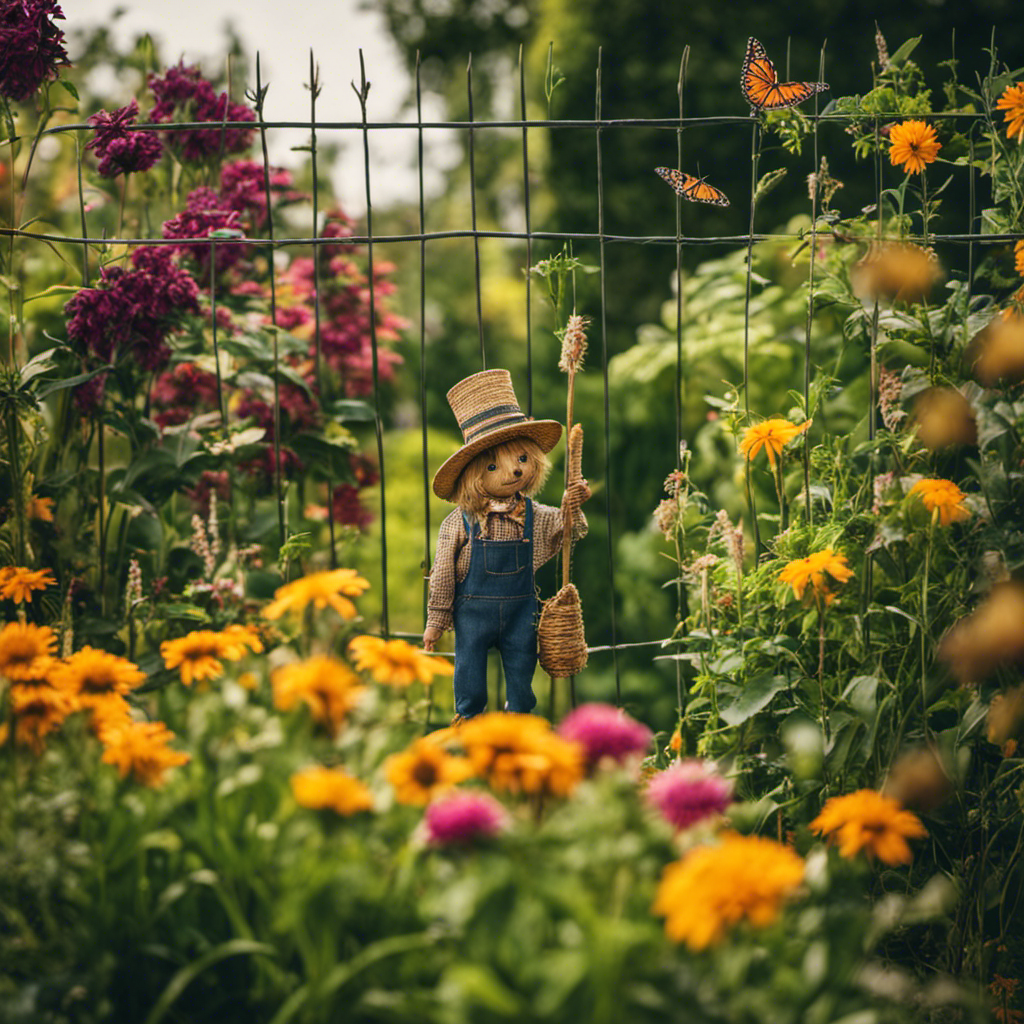
Consider using physical barriers as an effective method of pest control in your garden. Physical barriers create obstacles that prevent pests from reaching your plants, reducing the need for chemical pesticides. Here are three DIY solutions you can try:
-
Fencing: Install a sturdy fence around your garden to keep out larger pests like rabbits, deer, and rodents. Use materials such as chicken wire or hardware cloth to ensure a secure and impenetrable barrier.
-
Row Covers: Use lightweight fabric covers to protect your plants from flying insects like aphids and cabbage worms. These covers allow sunlight and water to reach the plants while keeping pests away.
-
Mulching: Apply a layer of organic mulch around the base of your plants. This acts as a physical barrier that deters pests from reaching the plants and helps retain moisture in the soil.
Soil Amendments
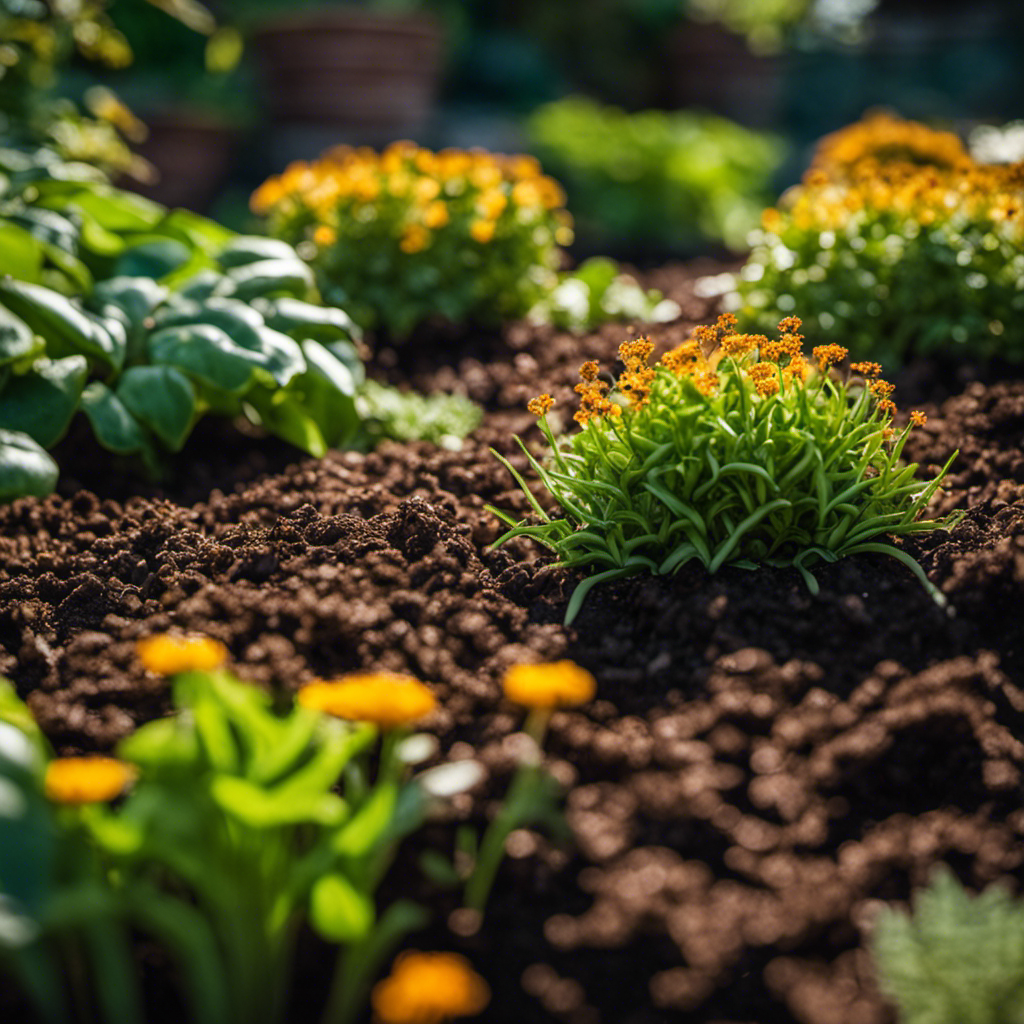
Enhance your garden’s soil naturally by using organic soil amendments. These beneficial substances can improve fertility and increase nutrient absorption in your garden.
Incorporating organic matter like compost, manure, and leaf mold into the soil enriches it with essential nutrients and beneficial microorganisms. This, in turn, improves soil structure, resulting in better water retention and drainage.
The availability of nutrients also increases, making them more accessible to plants and promoting healthy growth. Additionally, organic soil amendments create a balanced and diverse ecosystem in your garden, which helps suppress pests.
Conclusion
Are you utilizing these natural methods to control pests in your garden?
By adopting techniques such as companion planting, biological control, natural repellents, physical barriers, and soil amendments, you can effectively manage pests in a scientific and precise manner.
These methods not only offer an eco-friendly solution but also contribute to a more balanced and sustainable ecosystem.
So, why not consider these natural alternatives and say goodbye to harmful chemicals and pesticides?
Your garden and the environment will both benefit from it.
